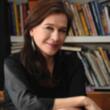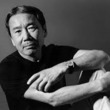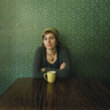The book of form and emptiness: a novel
Author
Publisher
Varies, see individual formats and editions
Publication Date
Varies, see individual formats and editions
Language
English
Appears on these lists
Description
Winner of the Women’s Prize for Fiction“No one writes like Ruth Ozeki—a triumph.” —Matt Haig, New York Times bestselling author of The Midnight Library “Inventive, vivid, and propelled by a sense of wonder.” —TIME “If you’ve lost your way with fiction over the last year or two, let The Book of Form and Emptiness light your way home.” —David Mitchell, Booker Prize-finalist author of Cloud Atlas A boy who hears the voices of objects all around him; a mother drowning in her possessions; and a Book that might hold the secret to saving them both—the brilliantly inventive new novel from the Booker Prize-finalist Ruth OzekiOne year after the death of his beloved musician father, thirteen-year-old Benny Oh begins to hear voices. The voices belong to the things in his house—a sneaker, a broken Christmas ornament, a piece of wilted lettuce. Although Benny doesn't understand what these things are saying, he can sense their emotional tone; some are pleasant, a gentle hum or coo, but others are snide, angry and full of pain. When his mother, Annabelle, develops a hoarding problem, the voices grow more clamorous. At first, Benny tries to ignore them, but soon the voices follow him outside the house, onto the street and at school, driving him at last to seek refuge in the silence of a large public library, where objects are well-behaved and know to speak in whispers. There, Benny discovers a strange new world. He falls in love with a mesmerizing street artist with a smug pet ferret, who uses the library as her performance space. He meets a homeless philosopher-poet, who encourages him to ask important questions and find his own voice amongst the many. And he meets his very own Book—a talking thing—who narrates Benny’s life and teaches him to listen to the things that truly matter. With its blend of sympathetic characters, riveting plot, and vibrant engagement with everything from jazz, to climate change, to our attachment to material possessions, The Book of Form and Emptiness is classic Ruth Ozeki—bold, wise, poignant, playful, humane and heartbreaking.
More Details
Contributors
ISBN
9780399563645
9780399563652
9781432893705
9780593417928
143289370
9780399563652
9781432893705
9780593417928
143289370
Excerpt
Loading Excerpt...
Similar Titles From NoveList
NoveList provides detailed suggestions for titles you might like if you enjoyed this book. Suggestions are based on recommendations from librarians and other contributors.
These books have the appeal factors reflective, stylistically complex, and multiple perspectives, and they have the theme "coping with death"; the genre "literary fiction"; the subjects "death of fathers," "loss," and "grief"; and characters that are "complex characters" and "introspective characters."
These engaging literary coming-of-age stories feature complex characters living with invisible disabilities. Emptiness's protagonist has auditory hallucinations while Small Town's is on the spectrum, and both have been deeply affected by the loss of their father, exacerbating internal and external struggles. -- Heather Cover
Although Book of Form and Emptiness is more reflective and stylistically complex, both of these literary coming-of-age novels shine a light on a neurodivergent teen forming a human connection while seeking to understand themselves. -- Mary Olson
These stylistically complex coming-of-age tales center the experiences of curious, perceptive kids united by an interest in the written word, whether that entails seeking solace at the library (Form and Emptiness) or tracking down an esoteric manuscript (Life Hacks). -- Basia Wilson
These stylistically complex and character-driven literary novels portray complex characters coping with death. Both stories feature surreal elements and transformative art (literature in Book; film in Third). Third Hotel centers on a widow. Book revolves around a teenage boy. -- Alicia Cavitt
These books have the appeal factors bittersweet, and they have the themes "coping with death" and "living with invisible disability"; the subjects "death of fathers," "loss," and "grief"; include the identities "neurodivergent" and "autistic"; and characters that are "flawed characters."
These books have the appeal factors haunting, stylistically complex, and unconventional, and they have the theme "coping with death"; the genres "literary fiction" and "magical realism"; the subjects "death of fathers," "loss," and "grief"; and characters that are "complex characters."
These books have the appeal factors stylistically complex and unconventional, and they have the theme "coping with death"; the subjects "death of fathers," "books and reading," and "libraries"; and characters that are "introspective characters."
These books have the appeal factors reflective and stylistically complex, and they have the theme "coping with death"; the genres "literary fiction" and "mainstream fiction"; and the subjects "death of fathers," "loss," and "grief."
Thirteen-year-old boys juggle chaotic home life and the death of a father, along with hearing strange voices (The Book of Form) or experiencing paranoia (The Other Mother) in these engaging coming-of-age stories. Both feature endearing young protagonists. -- Andrienne Cruz
Both unconventionally told literary fiction novels are infused with magical realism. In Parasol, characters unwittingly read different versions of the same ever-evolving book, while the protagonist of Form and Emptiness discovers the story of his life in a library book. -- Basia Wilson
In these character-driven works of literary fiction, teenage boys contend with tough choices with the loss of a parent (The Book of Form and Happiness) or violent bullying (Heaven). Readers will have plenty to ponder in these compelling and insightful stories. -- Andrienne Cruz
Similar Authors From NoveList
NoveList provides detailed suggestions for other authors you might want to read if you enjoyed this book. Suggestions are based on recommendations from librarians and other contributors.
Ruth L. Ozeki and Edwidge Danticat are familiar with the emotional and cultural disconnect for recent immigrants. Their character-driven work is thought-provoking and moving, discussing the constant balancing act between individuality and society. Ozeki is the more optimistic, while Danticat is bleak and haunting. -- Mike Nilsson
Ruth L. Ozeki's and Marie Mutsuki Mockett's character-driven fiction incorporates intricate plots and multiple perspectives. Their Japanese and Japanese-American protagonists wrestle with both fraught family relationships and problematic romantic relationships in moving, thought-provoking tales of pain, acceptance, and forgiveness. -- Mike Nilsson
Family, culture, and the need for personal identity figure strongly in the novels by Ruth L. Ozeki and Kyoko Mori. Troubled female protagonists often must come to terms with aging and death in their moving, thought-provoking tales. Ozeki's work is more stylistically complex, while Mori opts for simple, straightforward storytelling. -- Mike Nilsson
These authors' works have the genre "literary fiction"; the subjects "east asian people," "asian people," and "japanese american women"; include the identity "asian"; and characters that are "sympathetic characters."
These authors' works have the appeal factors hopeful, stylistically complex, and unconventional, and they have the subjects "east asian people," "tsunamis," and "tohoku earthquake and tsunami, japan, 2011."
These authors' works have the appeal factors reflective, stylistically complex, and first person narratives, and they have the genre "psychological fiction"; the subjects "east asian people," "asian people," and "loneliness"; include the identity "asian"; and characters that are "sympathetic characters."
These authors' works have the appeal factors reflective, sardonic, and stylistically complex, and they have the genre "satire and parodies"; the subjects "east asian people," "asian people," and "loneliness"; include the identity "asian"; and characters that are "complex characters."
These authors' works have the appeal factors reflective, stylistically complex, and multiple perspectives, and they have the genres "literary fiction" and "psychological fiction"; the subjects "east asian people," "asian people," and "loneliness"; include the identity "asian"; and characters that are "complex characters."
These authors' works have the appeal factors stylistically complex, thoughtful, and multiple perspectives, and they have the genre "literary fiction"; the subjects "east asian people," "asian people," and "american people"; include the identity "asian"; and characters that are "sympathetic characters" and "complex characters."
These authors' works have the appeal factors stylistically complex, and they have the genre "literary fiction"; the subjects "east asian people," "asian people," and "loss"; and include the identity "asian."
These authors' works have the appeal factors reflective, stylistically complex, and unnamed narrator, and they have the subjects "east asian people," "asian people," and "loneliness"; and include the identity "asian."
These authors' works have the appeal factors reflective and stylistically complex, and they have the genre "literary fiction"; the subjects "east asian people," "asian people," and "ethnic identity"; and include the identity "asian."
Reviews from GoodReads
Loading GoodReads Reviews.
Staff View
Loading Staff View.


































